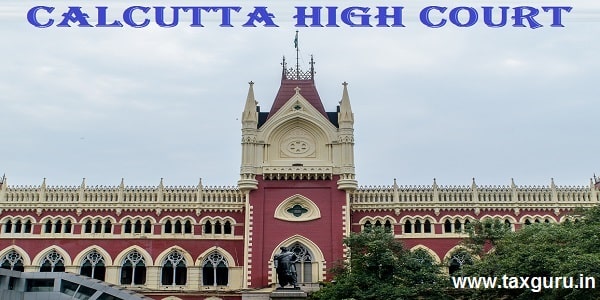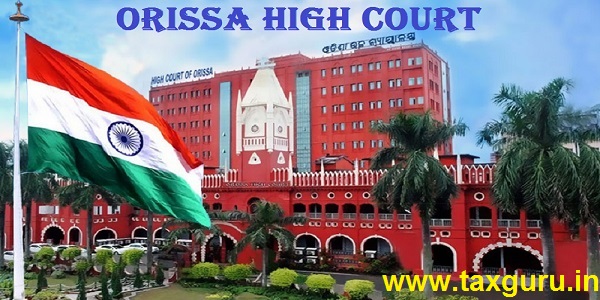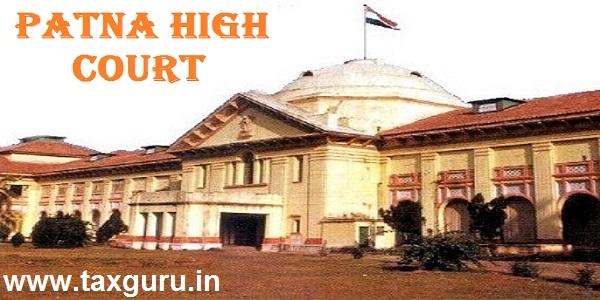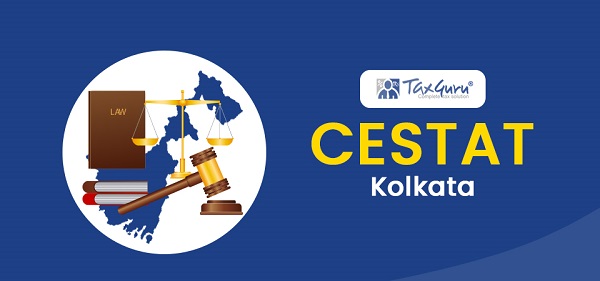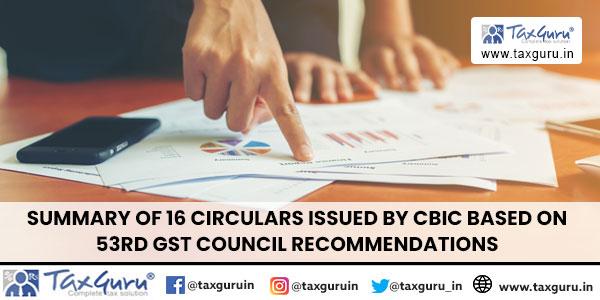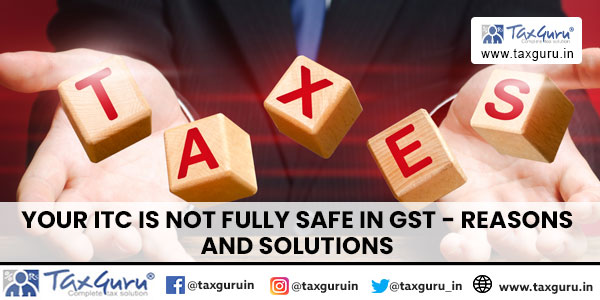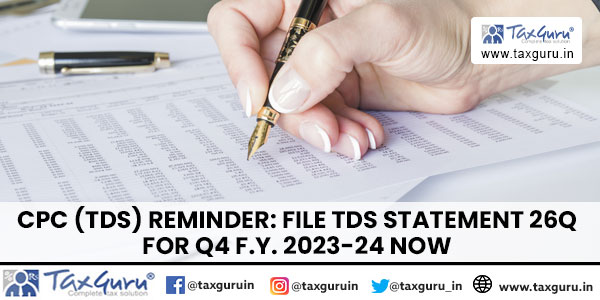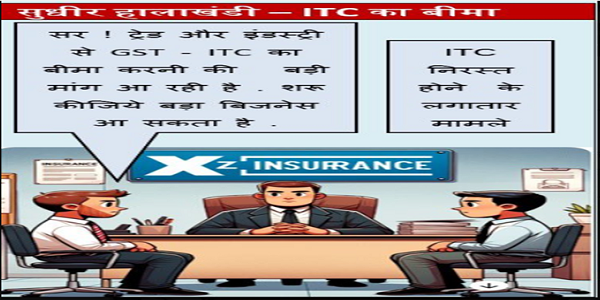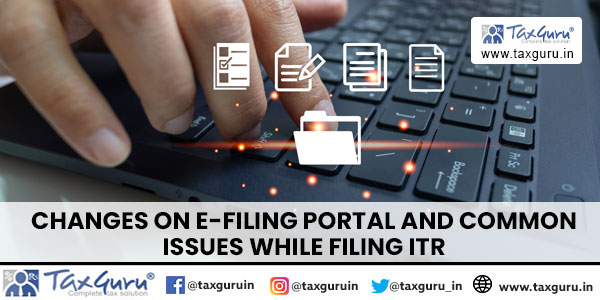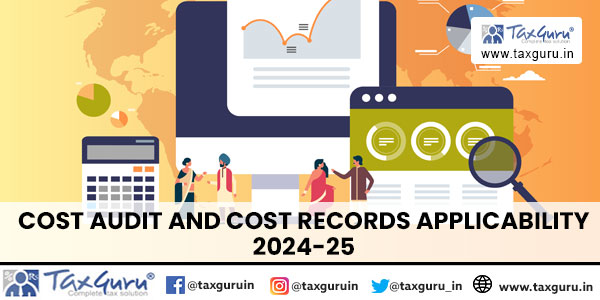Provisions of the Constitution, which are directly, or indirectly related with goods and services tax law making powers of Parliament, the Legislatures of the States and Union territories with Legislature, run as follows:-
1. Article 366(12) of the Constitution, which defines word ‘goods’, runs as follows:-
“(12) “goods” includes all materials, commodities, and articles;”
2. Article 366(26A) of the Constitution, which defines word “services”, runs as follows:-
“(26A) “Services” means anything other than goods;”
3. Article 366(12A) of the Constitution, which defines expression ‘goods and services tax’, runs as follows:-
“(12A) “goods and services tax” means any tax on supply of goods, or services or both except taxes on the supply of the alcoholic liquor for human consumption;”
4. Article 366(26B) of the Constitution provides that for Articles specified in the said provision, word “State” shall include a Union territory with Legislature. Said Article 366(26B) runs as follows:-
“(26B) “State” with reference to articles 246A, 268, 269, 269A and article 279A includes a Union territory with Legislature;”
5. Article 367 of the Constitution is related with interpretation of the Constitution. Said Article runs as follows:–
“367. Interpretation.—(1) Unless the context otherwise requires, the General Clauses Act, 1897, shall, subject to any adaptations and modifications that may be made therein under article 372, apply for the interpretation of this Constitution as it applies for the interpretation of an Act of the Legislature of the Dominion of India.
(2) Any reference in this Constitution to Acts or laws of, or made by, Parliament, or to Acts or laws of, or made by, the Legislature of a State, shall be construed as including a reference to an Ordinance made by the President or, to an Ordinance made by a Governor, as the case may be.
(3) For the purposes of this Constitution “foreign State” means any State other than India:
Provided that, subject to the provisions of any law made by Parliament, the President may by order declare any State not to be a foreign State for such purposes as may be specified in the order.”
6. Article 265 of the Constitution runs as follows:-
“265. Taxes not to be imposed save by authority of law.—No tax shall be levied or collected except by authority of law.”
Part XI of the Constitution relates to “Relations Between the Union and the States”. Chapter I of Part XI of the Constitution relates to “Legislative Relations”. Articles 245 to 255 of Chapter I of Part XI of the Constitution are related to “Distribution of Powers”.
7. Article 245 of the Constitution, which is fountain source of law making powers for Parliament and the Legislatures of the States, runs as follows:–
“245. Extent of laws made by Parliament and by the Legislatures of States.—(1) Subject to the provisions of this Constitution, Parliament may make laws for the whole or any part of the territory of India, and the Legislature of a State may make laws for the whole or any part of the State.
(2) No law made by Parliament shall be deemed to be invalid on the ground that it would have extra-territorial operation.
8. Article 246A of the Constitution, which assigns fields of Legislation (subject matter of law) with respect to goods and services tax to Parliament, the Legislature of every State, and each Union territory with Legislature, runs as follows:–
“246A. Special provision with respect to goods and services tax.—(1) Notwithstanding anything contained in articles 246 and 254, Parliament, and, subject to clause (2), the Legislature of every State, have power to make laws with respect to goods and services tax imposed by the Union or by such State.
(2) Parliament has exclusive power to make laws with respect to goods and services tax where the supply of goods, or of services, or both takes place in the course of inter-State trade or commerce.”
Explanation.—The provisions of this article, shall, in respect of goods and services tax referred to in clause (5) of article 279A, take effect from the date recommended by the Goods and Services Tax Council.”
Conjoint reading of Article 246A, and Article 366(26B), of the Constitution reveals that for the purpose of Article 246A, word “State” includes a Union territory with Legislature. Therefore, National Capital Territory of Delhi, and Union Territory of Puducherry, may also make law with respect to goods and services tax subject to provisions of clause (2) of Article 246A of the Constitution.
Part XII of the Constitution relates to “Finance, Property, Contracts and Suits”. Chapter I of Part XII of the Constitution relates to Finance. Starting from Article 264 to Article 291 of the Constitution, said Articles fall under Chapter I of Part XII of the Constitution.
9. Article 269A of the Constitution provides, (i) for levy and collection of tax by the Government of India on supply of goods, or services, or both where such supply takes place in the course of inter-State trade or commerce, and (ii) for apportionment of tax collected on such supply in between the Union and the States. Explanation of clause (1) of said Article 269A provides that for the purposes of levy and collection of tax, for apportionment of collected tax in between the Union and the States, supply of goods, or of services, or both in the course of import into the territory of India shall be deemed to be supply of goods, or of services, or both in the course of inter-State trade or commerce. Said Article 269A runs as follows:-
“269A.── Levy and collection of goods and services tax in course of inter-State trade or commerce.—
(1) Goods and services tax on supplies in the course of inter-State trade or commerce shall be levied and collected by the Government of India and such tax shall be apportioned between the Union and the States in the manner as may be provided by Parliament by law on the recommendations of the Goods and Services Tax Council.
Explanation.—For the purposes of this clause, supply of goods, or of services, or both in the course of import into the territory of India shall be deemed to be supply of goods, or of services, or both in the course of inter-State trade or commerce.
(2) The amount apportioned to a State under clause (1) shall not form part of the Consolidated Fund of India.
(3) Where an amount collected as tax levied under clause (1) has been used for payment of the tax levied by a State under article 246A, such amount shall not form part of the Consolidated Fund of India.
(4) Where an amount collected as tax levied by a State under article 246A has been used for payment of the tax levied under clause (1), such amount shall not form part of the Consolidated Fund of the State.
(5) Parliament may, by law, formulate the principles for determining the place of supply, and when a supply of goods, or of services, or both takes place in the course of inter-State trade or commerce.”
10. Article 270 of the Constitution relates to “Taxes levied and distributed between the Union and the States”. Said Article 270 runs as follows:–
“270. Taxes levied and distributed between the Union and the States. — (1) All taxes and duties referred to in the Union List, except the duties and taxes referred to in articles 268, 269 and 269A, respectively, surcharge on taxes and duties referred to in article 271 and any cess levied for specific purposes under any law made by Parliament shall be levied and collected by the Government of India and shall be distributed between the Union and the States in the manner provided in clause (2).
(1A) The tax collected by the Union under clause (1) of article 246A shall also be distributed between the Union and the States in the manner provided in clause (2).
(1B) The tax levied and collected by the Union under clause (2) of article 246A and article 269A, which has been used for payment of the tax levied by the Union under clause (1) of article 246A, and the amount apportioned to the Union under clause (1) of article 269A, shall also be distributed between the Union and the States in the manner provided in clause (2).
(2) Such percentage, as may be prescribed, of the net proceeds of any such tax or duty in any financial year shall not form part of the Consolidated Fund of India, but shall be assigned to the States within which that tax or duty is leviable in that year, and shall be distributed among those States in such manner and from such time as may be prescribed in the manner provided in clause (3).
(3) In this article, “prescribed” means,—
(i) until a Finance Commission has been constituted, prescribed by the President by order, and
(ii) after a Finance Commission has been constituted, prescribed by the President by order after considering the recommendations of the Finance Commission.”
11. Article 279A of the Constitution relates to creation of “Goods and Services Tax Council” by the President for making recommendations to the Union and the States on matters as specified in the said Article and such other goods and services tax related matters as the Council may decide. Said Article 279A runs as follows:–
“279A. Goods and Services Tax Council.—(1) The President shall, within sixty days from the date of commencement of the Constitution (One Hundred and First Amendment) Act, 2016, by order, constitute a Council to be called the Goods and Services Tax Council.
(2) The Goods and Services Tax Council shall consist of the following members, namely:—
(a) the Union Finance Minister—Chairperson;
(b) the Union Minister of State in charge of Revenue or Finance—Member ;
(c) the Minister in charge of Finance or Taxation or any other Minister nominated by each State Government—Members.
(3) The Members of the Goods and Services Tax Council referred to in sub-clause (c) of clause (2) shall, as soon as may be, choose one amongst themselves to be the Vice-Chairperson of the Council for such period as they may decide.
(4) The Goods and Services Tax Council shall make recommendations to the Union and the States on—
(a) the taxes, cesses and surcharges levied by the Union, the States and the local bodies which may be subsumed in the goods and services tax;
(b) the goods and services that may be subjected to, or exempted from the goods and services tax;
(c) model Goods and Services Tax Laws, principles of levy, apportionment of Goods and Services Tax levied on supplies in the course of inter-State trade or commerce under article 269A and the principles that govern the place of supply;
(d) the threshold limit of turnover below which goods and services may be exempted from goods and services tax;
(e) the rates including floor rates with bands of goods and services tax;
(f) any special rate or rates for a specified period, to raise additional resources during any natural calamity or disaster;
(g) special provision with respect to the States of Arunachal Pradesh, Assam, Jammu and Kashmir, Manipur, Meghalaya, Mizoram, Nagaland, Sikkim, Tripura, Himachal Pradesh and Uttarakhand; and
(h) any other matter relating to the goods and services tax, as the Council may decide.
(5) The Goods and Services Tax Council shall recommend the date on which the goods and services tax be levied on petroleum crude, high speed diesel, motor spirit (commonly known as petrol), natural gas and aviation turbine fuel.
(6) While discharging the functions conferred by this article, the Goods and Services Tax Council shall be guided by the need for a harmonised structure of goods and services tax and for the development of a harmonised national market for goods and services.
(7) One-half of the total number of Members of the Goods and Services Tax Council shall constitute the quorum at its meetings.
(8) The Goods and Services Tax Council shall determine the procedure in the performance of its functions.
(9) Every decision of the Goods and Services Tax Council shall be taken at a meeting, by a majority of not less than three-fourths of the weighted votes of the members present and voting, in accordance with the following principles, namely:—
(a) the vote of the Central Government shall have a weightage of one-third of the total votes cast, and
(b) the votes of all the State Governments taken together shall have a weightage of two-thirds of the total votes cast, in that meeting.
(10) No act or proceedings of the Goods and Services Tax Council shall be invalid merely by reason of—
(a) any vacancy in, or any defect in, the constitution of the Council; or
(b) any defect in the appointment of a person as a Member of the Council; or
(c) any procedural irregularity of the Council not affecting the merits of the case.
(11) The Goods and Services Tax Council shall establish a mechanism to adjudicate any dispute—
(a) between the Government of India and one or more States; or
(b) between the Government of India and any State or States on one side and one or more other States on the other side; or
(c) between two or more States, arising out of the recommendations of the Council or implementation thereof.”
12. Although, Title or Head Note of Article 286 of the Constitution runs as “Restrictions as to imposition of tax on the sale or purchase of goods, but provisions of said Article 286 are related to “Restrictions as to imposition of goods and services tax on the supply of goods, or services, or both”. Earlier to amendment of said Article 286 by the Constitution (One Hundred and First Amendment) Act, 2016, Article 286 of the Constitution had been related to “Restrictions as to imposition of tax on the sale or purchase of goods”. There is another error in amended clause (2) of the said Article 286. In clause (2) of Article 286, words “takes place” are missing in between the words “both” and “in”. Amended Article 286 of the Constitution runs as follows:–
“286. Restrictions as to imposition of tax on the sale or purchase of goods.—(1) No law of a State shall impose, or authorise the imposition of, a tax on the supply of goods or of services or both, where such supply takes place —
(a) outside the State; or
(b) in the course of the import of the goods or services or both into, or export of the goods or services or both out of, the territory of India.
(2) Parliament may by law formulate principles for determining when a supply of goods or of services or both in any of the ways mentioned in clause (1).”
13. Part III of the Constitution relates to “Fundamental Rights”. Articles 12 and 13 of the Constitution provide general provisions for Part III of the Constitution. These Articles run as follows:-
“12. Definition.—In this Part, unless the context otherwise requires, “the State” includes the Government and Parliament of India and the Government and the Legislature of each of the States and all local or other authorities within the territory of India or under the control of the Government of India.
13. Laws inconsistent with or in derogation of the fundamental rights.—(1) All laws in force in the territory of India immediately before the commencement of this Constitution, in so far as they are inconsistent with the provisions of this Part, shall, to the extent of such inconsistency, be void.
(2) The State shall not make any law which takes away or abridges the rights conferred by this Part and any law made in contravention of this clause shall, to the extent of the contravention, be void.
(3) In this article, unless the context otherwise requires,—
(a) “law” includes any Ordinance, order, bye-law, rule, regulation, notification, custom or usage having in the territory of India the force of law;
(b) “laws in force” includes laws passed or made by a Legislature or other competent authority in the territory of India before the commencement of this Constitution and not previously repealed, notwithstanding that any such law or any part thereof may not be then in operation either at all or in particular areas.
(4) Nothing in this article shall apply to any amendment of this Constitution made under article 368.”
14. Under Part III of the Constitution, Article 14 of the Constitution relates to “Right to Equality”. Said Article 14 runs as follows:–
“14. Equality before law.—The State shall not deny to any person equality before the law or the equal protection of the laws within the territory of India.”
15. Under Part III of the Constitution, Article 19 of the Constitution relates to “Protection of certain rights regarding of freedom of speech, etc.”. Sub-clause (g) of clause (1) of Article 19 of the Constitution runs as follows:-
“19(1) All citizens shall have the right──
(g) to practise any profession, or to carry on any occupation, trade or business.”
Clause (6) of Article 19 of the Constitution runs as follows:-
“(6) Nothing in sub-clause (g) of the said clause shall affect the operation of any existing law in so far as it imposes, or prevent the State from making any law imposing, in the interests of the general public, reasonable restrictions on the exercise of the right conferred by the said sub-clause, and, in particular, nothing in the said sub-clause shall affect the operation of any existing law in so far as it relates to, or prevent the State from making any law relating to,—
(i) the professional or technical qualifications necessary for practising any profession or carrying on any occupation, trade or business, or
(ii) the carrying on by the State, or by a corporation owned or controlled by the State, of any trade, business, industry or service, whether to the exclusion, complete or partial, of citizens or otherwise.”
In order to protect right of citizens of practising any profession, or to carry on any occupation, trade or business, Article 279A(4)(d) of the Constitution provides that “The Goods and Services Tax Council shall make recommendation to the Union and the States on—
(d) the threshold limit of turnover below which goods and services may be exempted from goods and services tax;”
Purpose of said recommendation is to grant exemption from making compliance of goods and services tax laws to those persons, whose turnover does not exceed such limit of turnover as may be recommended by the Goods and Services Tax Council. Sad state of affairs is that the Goods and Services Tax Council has not made recommendation as required by sub-clause (d) of clause (4) of Article 279A of the Constitution. On the basis of recommendation of the Goods and Services Tax Council, large number of persons have been made liable for obtaining registration irrespective of value of their turnover.
To begin with introducing goods and services tax in the country, the Union Government had invited the Empowered Committee of State Finance Ministers (the Empowered Committee) for preparing design and roadmap for introducing goods and services tax in the country. Joint Working Groups of officials of the Union and States were also constituted. The said Empowered Committee had, on November 10, 2009, released “First Discussion Paper On Goods and Services Tax In India” in public domain. In this discussion paper, about the threshold exemption, the Empowered Committee had, inter-alia, expressed its views as follows:–
“Threshold exemption is built into a tax regime to keep small traders out of tax net. This has three-fold objectives:
a) It is difficult to administer small traders and cost of administering of such traders is very high in comparison to the tax paid by them.
b) The compliance cost and compliance effort would be saved for such small traders.
c) Small traders get relative advantage over large enterprises on account of lower tax incidence.”
Compliance cost and compliance effort is the main reason for fixing threshold exemption limit of turnover. In the Constitution, clause (4) (d) of Article 279A was enacted for the purpose of providing threshold limit of turnover in GST Laws. It seems that there has been some misunderstanding at the time of preparing Model Goods and Services Tax Laws at the stage of GST Council. Result is that provisions of section 24 of the Central Goods and Services Tax Act, 2017, and similar provisions of other GST Laws have been enacted in violation of Article 13(2), Article 14, and Articles 19(1) (g) and 19(6) of the Constitution. Article 13(2) of the Constitution runs as follows:-
“(2) The State shall not make any law which takes away or abridges the rights conferred by this Part and any law made in contravention of this clause shall, to the extent of the contravention, be void.”
In view of definition of word “State”, as provided in Article 12 of the Constitution for Part III of the Constitution, word “State” includes the Government and Parliament of India and the Government and the Legislature of each of the States and all local or other authorities within the territory of India or under the control of the Government of India. Therefore, Article 13(2) equally applies to Goods and Services Tax Laws made by Parliament as well as to Goods and Services Tax Laws by the Legislatures of the States. Persons, who intend to earn their livelihood by running small businesses of supply of goods, or services, or both, cannot bear heavy burden of compliance costs. Due to expensive litigation, they also cannot approach Honorable High Court or the honorable Supreme Court. In absence of verdict of the Honorable High Court, or the Honorable Supreme Court, benefit of Article 13(2) cannot be availed by small businesses.
16. Other laws, connected with goods and services tax, which may be made by Parliament.──
(i) Article 269A(5) of the Constitution, which relates to levy and collection of goods and services tax in course of inter-State trade or commerce, provides that Parliament may, by law, formulate principles for determining the place of supply, and when a supply of goods, or services, or both takes place in the course of inter-State trade or commerce.
(ii) Article 269A(1) of the Constitution provides that tax collected by the Union, under the law made under the said provision of the Constitution, shall be apportioned in between the Union and the States in the manner as Parliament may provide by law on recommendation of the Council.
(ii) Clause (1) of Article 286 of the Constitution provides that no law of a State shall impose, or authorize imposition of goods and services tax on a supply of goods, or services, or both where such supply takes place ──
(a) outside the State; or
(ii) in the course of the import of the goods, or services, or both into, or export of the goods, or services, or both out of, the territory of India.
Clause (2) of Article 286 of the Constitution provides that Parliament may, by law, formulate principles for determining when a supply of goods, or services, or both takes place in any of the ways mentioned in clause (1) of said Article 286.
*****
Disclaimer: Except the quoted versions, interpretations made and all other views expressed here are my personal views and are meant only for academic discussion. Readers are advised to follow the provisions of the law and to seek opinion of their legal advisors before acting upon the views expressed here. I and the publishers of this article disown any liability on account of any loss or damage that may be caused on account of use of views expressed here.





